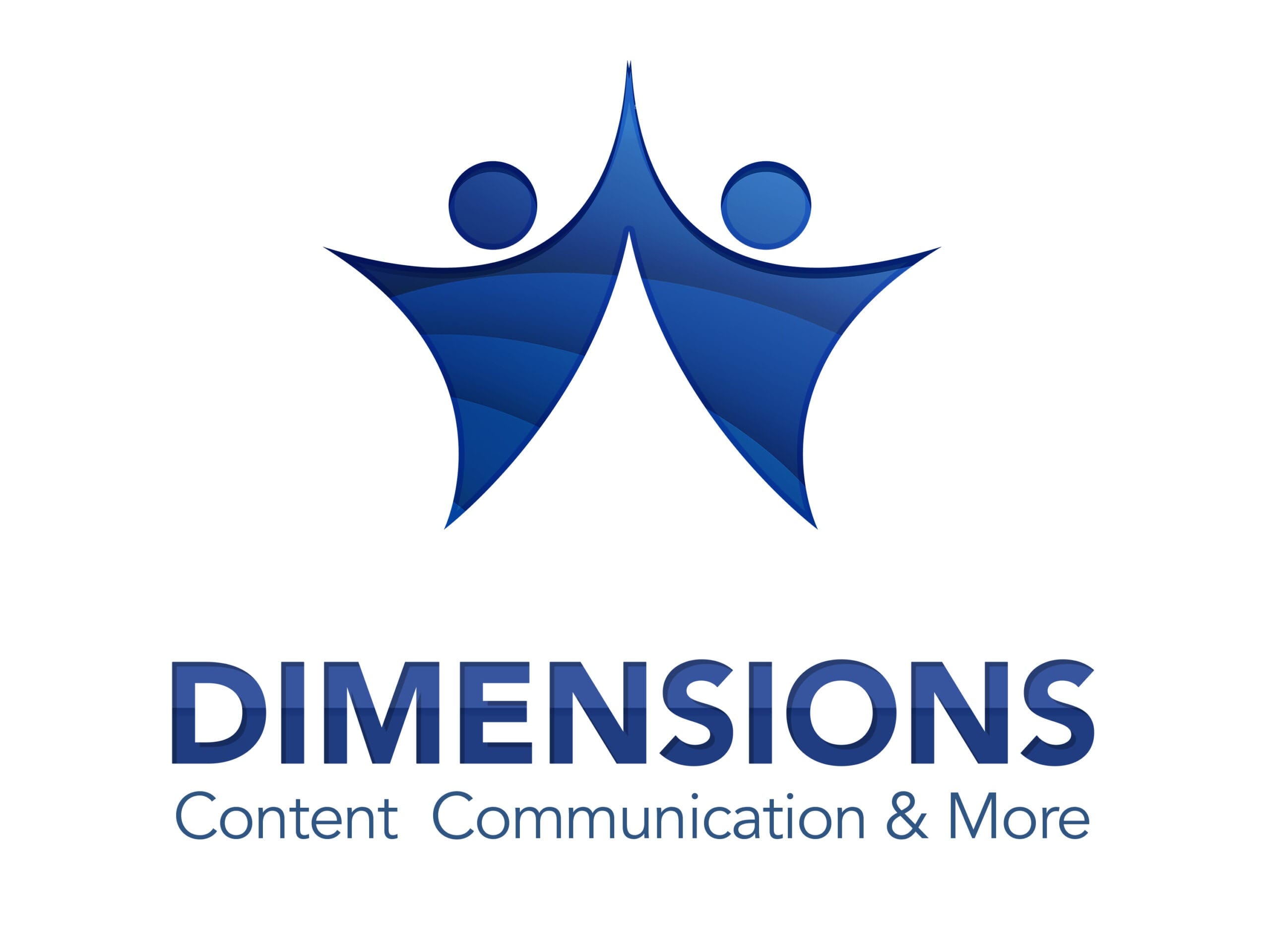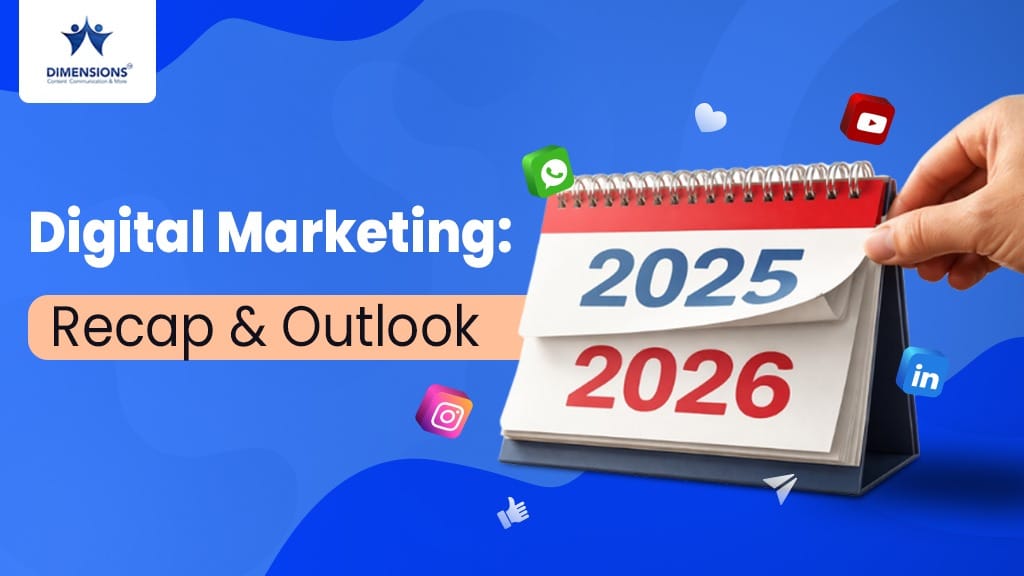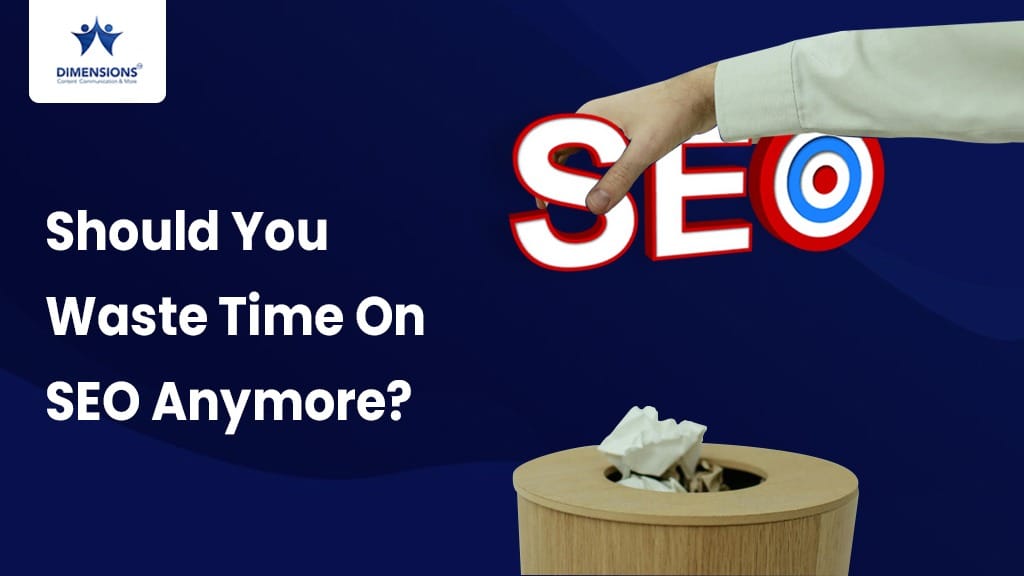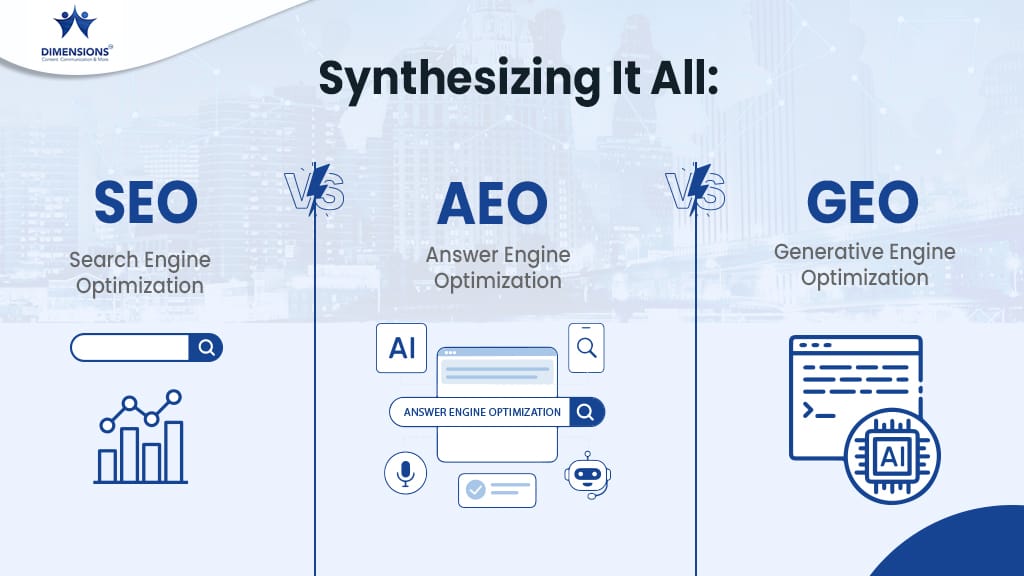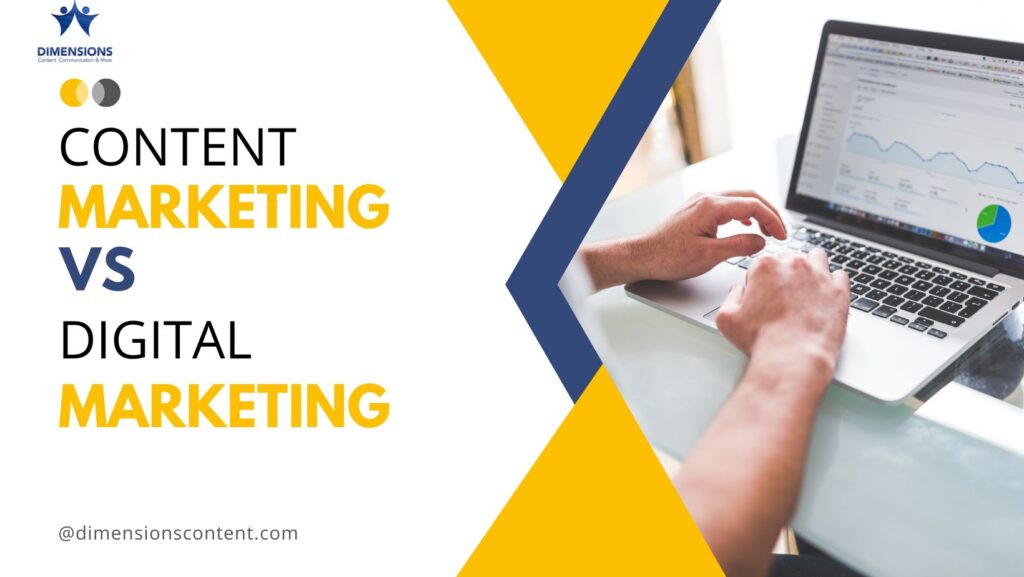
What is the Difference Between Content Marketing and Digital Marketing?
All content marketing is digital marketing, but not all digital marketing is content marketing. Period!
In this digital era, there is hardly any business that is not conducted online. To optimize your reach, you must operate your business through digital and social media platforms. But did you know that using content to build your business is equally important as using a digital marketing strategy?
Content marketing and digital marketing; people use these terms interchangeably, but in reality, they are entirely different. Let us walk you through the differences between content marketing and digital marketing.
What is Content Marketing?
Content marketing is a particular technique for branding. It is an essential element of any marketing strategy. Content can be anything from writing a blog post to creating photos, videos, and even Spotify playlists.
Content marketing is about making people aware of your brand. It stimulates consumer interest in a brand. When you produce relevant and up-to-date content, it gets people excited about your product.
Content builds a long-term relationship with your customers. It helps to build trust and brand value. For example, you can use a blog to answer customers’ enquiries. If you write quality content, you will become a trusted expert.
Benefits of Content Marketing
- Building brand reputation: It helps to build your brand’s reputation and mark you as trustworthy if you provide authentic content. People prefer to do business with you or consume your products if you are the go-to source of information.
- Attracts more traffic: Content marketing offers consumers what they want to see. As you can target your potential customer with engaging content, it helps to attract more traffic. An effective content marketing strategy helps attract loyal customers and increase organic traffic.
- Budget and pocket-friendly: There are no media placement costs, and most work can be done in-house. It helps you to keep the prices low.
- Supports other marketing strategies: Marketing strategies, such as search engine optimization, social media, and public relations success, depend on quality content.
Disadvantages of Content Marketing
- Require skills for success: High-quality content needs extensive research and expertise. If you cannot curate engaging and valuable content, you will neither be able to target the right customer nor will you have much success.
- It is a long process: While other marketing strategies are focused on sales and provide instant results, content marketing, on the other hand, is an indirect and long-term strategy.
- Evaluation: it’s pretty challenging to determine the impact of content on brand reputation, awareness and loyalty.
Types of Content Marketing
There are various forms of content marketing:
- Blogs
- Posting photos and videos, reels, etc
- Infographics
- Memes
- Instagram stories
- Case studies
- eBooks
- User-generated content
What is Digital Marketing?
Digital marketing or online marketing refers to advertising through digital channels to promote brands and transform potential customers into buyers. The ads you run on social media help the users arrive at your landing page, where you can pitch a product in the hope that you make a sale.
About 77% of customers research a brand online before engaging with it, and 51% of consumers use Google to research products before buying. These data indicate the importance of doing business online or going digital. The role of digital marketing is to get customers to go beyond the search results page.
Benefits of Digital Marketing
- Wider reach: Digital marketing improves brand awareness through online platforms and has a broader space with consumers all around the globe. All thanks to digital marketing, even start-up companies have equal access to the customers as big and successful companies in the traditional market.
- Brand development: Digital marketing helps build the brand in various ways, including direct campaigning and a personalized approach. This technique engages customers and allows them to experience the brand’s unique selling proposition and value. This technique leads to a sense of positivity among the customers towards the brand.
- Cost-effective: The cost involved is much less than traditional marketing campaigns. Also, digital marketing strategies are easier to implement with a limited budget and infrastructure, which makes them popular and adaptable among all sorts of business sizes.
Disadvantages of Digital Marketing
- Require expertise: The digital platform must gather the proper knowledge and expertise to carry out the marketing activities successfully. With regular technological advancements, it is essential to remain updated on tools, media, and methods to respond quickly to any changes.
- Time-consuming: Digital marketing requires making a plan and implementing several tasks related to online advertising optimization and creating suitable content for promotions that can take up a lot of time. It’s also essential to regularly track the results and modify strategies accordingly to ensure a return on investment.
- High competition: A broader reach to the global audience with digital marketing also requires building capabilities to face international competition. Establishing the brand against more competitors and grabbing the attention of the many digital channels campaigning in real-time can be challenging.
Types of Digital Marketing
- SEO (Search Engine Optimization)
- SEM (Search Engine Marketing)
- Social Media Marketing
- Email Marketing
- Pay-per-click ads
Content Marketing Vs Digital Marketing
- Content marketing offers a technique for creating and distributing content. It focuses on one particular avenue of brand promotion, whereas digital marketing is a broader online marketing strategy that includes content marketing and other marketing tactics.
- Content marketing is indirect and rarely attempts to convert, while digital marketing can be direct and indirect but always tries to convert potential buyers into users.
- Content marketing is a long-term strategy. It would help if you did a lot of research to produce quality content, which makes it quite expensive. On the other hand, you can try out many different digital marketing strategies. Once you find the right design, you can invest more time and money in them.
While these phrases are distinct, they always go hand-in-hand and support each other. You need content and digital marketing to create a compelling and holistic marketing strategy. The performance of your content marketing will determine how much your marketing strategy is working. Practical and attractive content will bring out the success of your digital marketing techniques.

Khushboo Pandey
Some people can say a lot using just a few words. Khushboo is one of them. She is the copywriting expert at Dimensions. With a Master's Degree focused on Mass Communication/Media Studies, Khushboo knows the ins and outs of what kind of content works, what kind of content touches the human heart and above all, how to write content that generates maximum revenue. She has an industry experience of 9 years.
